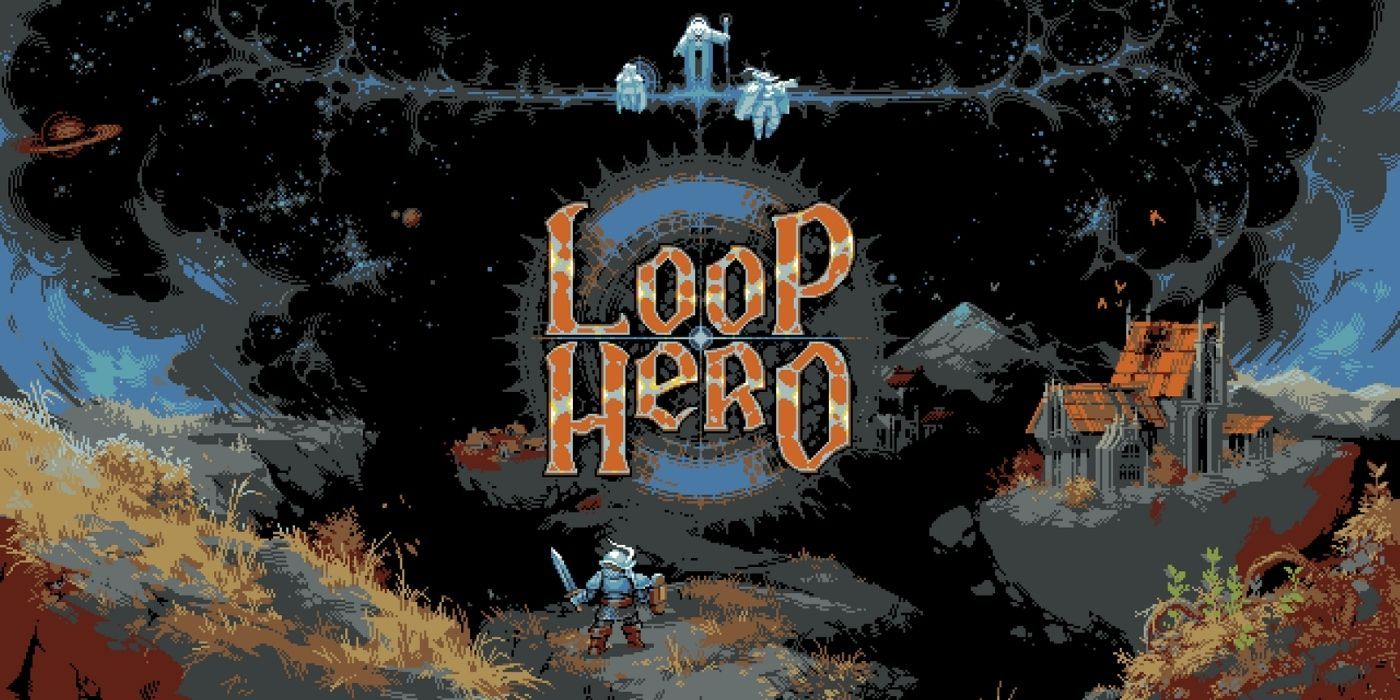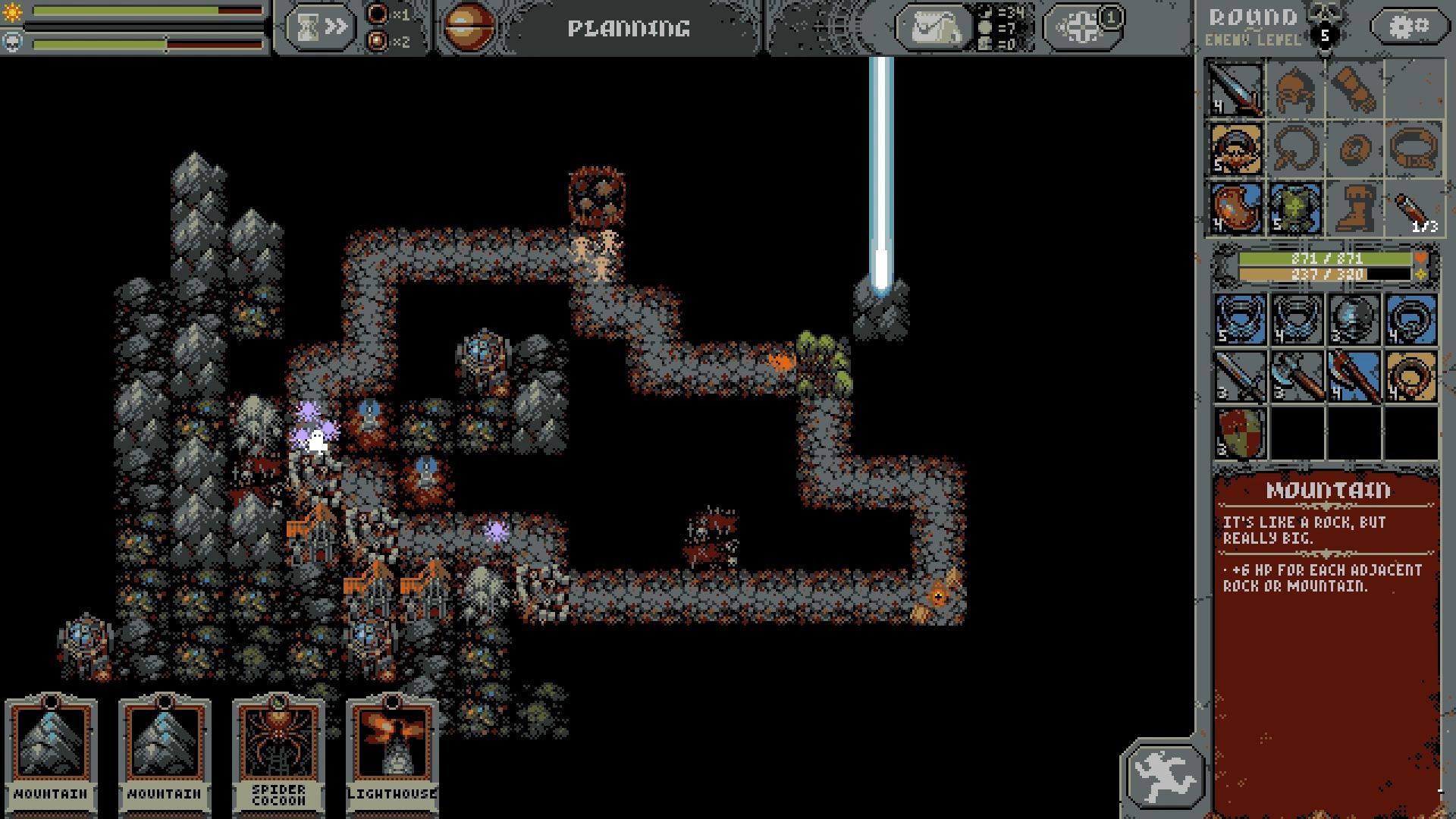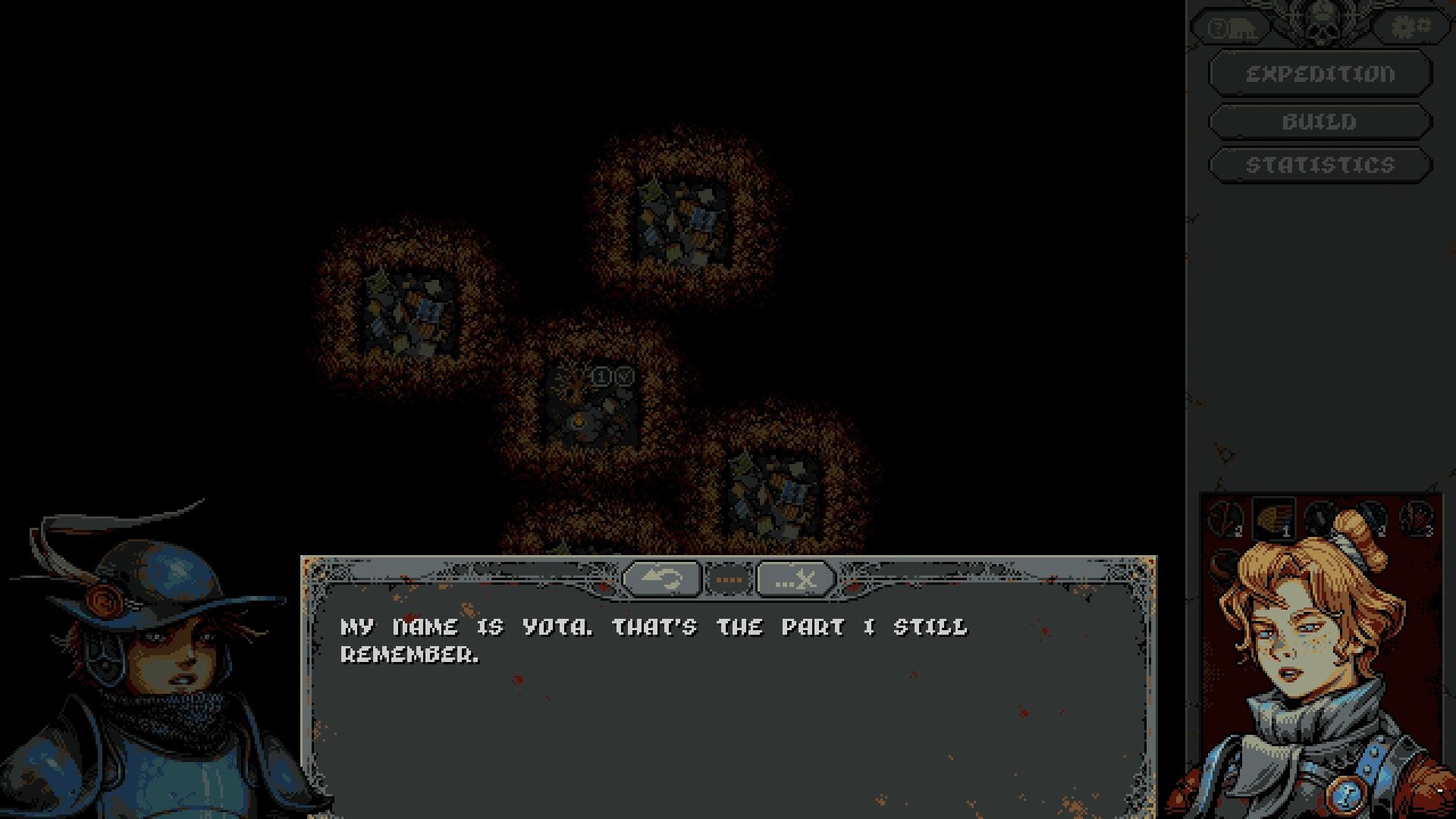Devolver Digital's Upcoming Loop Hero Explained | Game Rant

Loop Hero is an upcoming rogue-like RPG developed by Four Quarters and published by Devolver Digital, but that brief description doesn't do much justice to a game filled to the brim with unique features and concepts. Even watching the gameplay trailer doesn't fully convey what's going on to the viewer, so a hands-on experience is best for this. The game won't be coming out until later in 2021, but Game Rant recently had a chance to preview it for an interactive look at the upcoming title.
For starters, Loop Hero is developed by Four Quarters, a studio known for the creation of 2015's Please, Don't Touch Anything. This puzzle game flew mostly under the radar, and more name recognition will come from the title's publisher, Devolver Digital. Fans will recognize this name as the publisher for several popular games, including 2020's hit Fall Guys: Ultimate Knockout and other phenomenal titles in the rogue-like genre such as Enter the Gungeon. With that said, it's important to note that Loop Hero is very different from either of those titles, with the only similarity being that both it and Enter the Gungeon are rogue-likes at heart.

The gameplay of Loop Hero is very simple, as players aren't required to do much at all. All combat is played out automatically by the player's character, and even movement is handled without the aid of the player. Essentially, the titular Loop Hero walks circles around a randomly generated loop, fighting slimes and other monsters in exchange for cards and better equipment. This is where the player comes in, as deciding how to apply these cards and which pieces of equipment to use will drastically affect the outcome of the game.
Each of the cards that players receive represent an element of the map that players are able to create as they play the game. While their hero loops around fighting bad guys, players can create forests, mountains, and meadows out of thin air. Alongside these terrain type pieces, they can also create enemy spawn points, making each loop more difficult by providing better rewards as a result. Ultimately, the goal is to make it back to the camp before a loop becomes too much to complete, returning with resources that can then be used to gain permanent upgrades.

Upgrading the town is paramount to players that want to reach further in expeditions and uncover more of Loop Hero's unique story. The resources players gain on their adventures can be used to build new structures that each provide varying bonuses. The kitchen, for example, allows players to heal more between each loop, while the Refuge unlocks an entirely new playable class with different abilities and advantages. These types of permanent upgrades allow players to make it even further with each run, forming the basis of the rogue-like genre as a whole.
Moreover, the game's story is divided into several expeditions, each with increased difficulty and better rewards. For a good while, players will most likely remain on the first expedition, all in an effort to defeat the primary big bad, the Lich. With patience and strategy, players will eventually defeat this enemy, opening up a whole new set of challenges and potential for worldbuilding. Everything in Loop Hero is a constant give or take, with the promise of great rewards tempting players into accepting greater challenges. It will take strong strategy to bite off just as much as the player can take without getting overwhelmed.

The crux of what makes Loop Hero so unique is the worldbuilding aspects of each run. At the start, players will find themselves on an empty loop, devoid of anything other than their starting campfire and a handful of slimes. Each slime that the player defeats has the potential to drop some weaker equipment, but more importantly, they also offer new terrain cards. Players might then choose to build a grove, granting them one wood whenever they pass through it but also causing a ratwolf to spawn each day. These enemies are much tougher than slimes but will drop better gear if the player can take them down.
This type of gameplay continues on in the same fashion. While players started with an empty loop full of slimes and not much else, they may eventually find themselves traversing through extensive groves, passing under the shadow of mountains they built themselves, and even fighting off tougher enemies like vampires and harpies. Inevitably, the challenge will become too great and players will be forced to return to their camp in order to preserve their resources, but the allure of one more loop is hard to resist at times.

Without getting into any story spoilers, the premise of Loop Hero's story is also rather interesting. Players learn early on that the world was plunged into darkness and seemingly erased by some kind of evil lich. In an effort to stop the lich and return the world to its previous state, the Loop Hero sets out into the darkness to see what he can find. As he remembers what the world used to look like, it seems to be brought into being right before his very eyes. This explains the way players are able to build the environment around them as they play: they are actually just remembering it.
In typical rogue-like fashion, every time the player returns to their camp and sets out on another expedition, their memories of the world fade, requiring them to rebuild the world around them yet again. This ensures that every expedition into the empty space is unique from the last, and players can decide just how unique they want it to be by way of how they build the world. The concepts are confusing at times and the dialogue can be equally so, but it's an intriguing concept that players should take the time to explore.
Loop Hero releases in 2021 for PC.

Post a Comment